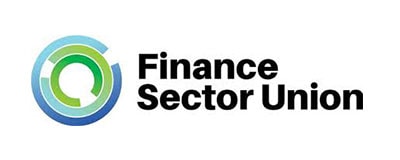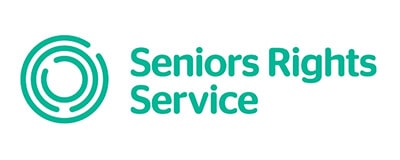Safe & Savvy: a guide to help people avoid scams, fraud and elder financial abuse.


Steps to stop elder financial abuse
Power of Attorney laws which are the same across the country and protect people from this kind of abuse.
A National Power of Attorney (POA) register to check if POA documents are legitimate.
Somewhere to report abuse in each state that can investigate and act.
Power of Attorney laws which are the same across the country and protect people from this kind of abuse.
A National Power of Attorney (POA) register to check if POA documents are legitimate.
Somewhere to report abuse in each state that can investigate and act.
Financial elder abuse is a serious and far-reaching problem
6 in 10 Australians are worried that someone they know will be the victim of this insidious abuse. Research shows 87% of Australians want governments to do more to stop it.
Increased house prices and reasonable superannuation balances can mean that some older people are in a good financial position, which can lead to family members feeling a sense of entitlement (also known as “inheritance impatience”).
Our most vulnerable at risk
Exact elder financial abuse numbers are difficult to come by – but numbers will increase as the population ages. By 2055 Australia’s population is expected to grow to 40 million, 25% of whom will be over 65.
State and Territory Attorneys-General, and the Federal Attorney-General are being urged to introduce three key changes to help better recognise, report and stamp out elder financial abuse.
Fact Sheet – Protecting yourself from financial elder abuse
The facts
- 6 in 10 Australians are worried that someone they know will be the victim of this insidious abuse.
- 87% of Australians wanting their government to do more to stop elder financial abuse.
- 57% of Australians are worried about a loved one experiencing financial abuse.
- It’s estimated that up to one in ten Australians will be affected by elder abuse each year.
- Exact numbers are hard to come by as it often goes unreported.
- The most common form of elder abuse is financial.
- Abuse can often cost victims their life savings.
- By 2050 those over 65 will make up around 25% of the population.
Fact Sheet – Setting up power of attorney for banking
Industry Guidelines
- Industry guideline – Preventing and responding to potential financial abuse: As a framework to banks, this industry guideline explains what financial abuse can look like, how it can impact customers and the bank’s relationships with their customers, and how banks staffs can respond.
- Industry guideline – Responding to requests from a power of attorney or court-appointed administrator: This industry guideline explains how these different arrangements work legally across Australia, how they are used by bank customers and their substitute decision-makers, and provides a framework for how banks should respond to these arrangements.
The Australian Guardianship and Administration Council has produced a helpful guide about making an enduring power for financial decisions: You Decide Who Decides
Australia’s banks along with older persons advocacy groups are calling on state and federal governments to agree to establish a national online register of Powers of Attorney. Read the media release.
- Always protect your bank and financial cards, cheque books and other important documents. Never hand over a PIN or password to anyone.
- If someone asks for money, discuss it first with a trusted family member or friend.
- Get your affairs in order. Talk to your bank about setting up direct debits and pre-authorised bill payments. Consider who has third party authorisations over your accounts and ensure that they are trusted.
- Keep a track on your bank accounts, investments and other assets.
- Put in place arrangements, like power of attorney, for how your money and property will be handled if something happens to you or you can no longer communicate your wishes effectively.
- Always read contracts and other documents carefully and never sign anything under duress, seek legal advice when in doubt or contact police if you think you are being abused.






What can be done
Bank staff often see first-hand elder financial abuse, but they need to be vigilant and cautious when faced with a possible case of financial abuse. To intervene or question a customer inappropriately, or without due consideration and sensitivity may cause embarrassment for the customer, or possibly damage the customer-banker relationship.
Banks will continue to offer ongoing training to frontline staff to help them identify and assist customers in difficult and sensitive situations.
Australia’s banks will work with governments and other key stakeholders to help ensure that all of the necessary measures, legislation and training are put in place to help protect older Australian’s from being abused financially.
- There is no one place for bank staff to report suspected cases – Australia needs an appropriate designated organisation where staff can report the suspected elder financial abuse for investigation.
- It’s difficult to assess customer competency.
- Power of attorney legislation is inconsistent across the country, which makes it complicated to detect and report abuse. Banks are calling on Governments to introduce standardised legislation across the country.
- To help check the legitimacy of a power of attorney banks want a national power of attorney register to be established. This would help all financial institutions verify the authority of a power of attorney or court-appointed administrator when they present themselves as acting on behalf of a customer.
- Always protect your bank and financial cards, cheque books and other important documents. Never hand over a PIN or password to anyone.
- If someone asks for money, discuss it with a trusted family member or friend before agreeing.
- Get your affairs in order. Talk to your bank about setting up direct debits and pre-authorised bill payments. Consider who has third party authorisations over your accounts and ensure that they are trusted.
- Keep a track of your bank accounts, investments and other assets.
- Put in place arrangements, like a power of attorney, for how your money and property will be handled if you can no longer communicate your wishes effectively.
- Always read contracts and other documents carefully and never sign anything under duress, seek legal advice when in doubt or contact police if you think you are being abused.
- Abusing power of attorney – Abuse can occur if someone with attorney power uses it to take a person’s assets for themselves.
- Pressure, threats and intimidation – This occurs when someone attempts to force an older person to sign over ownership of assets, or make them a beneficiary of their will.
- Fraud and scams – When a third-party deliberately sets out to falsely gain a person’s trust in order to defraud them and secure an unlawful gain.
- Abusing family agreements – Often families enter into informal agreements that are designed to help everyone, but have no legal backing (eg. older parents sell their home and split the profit with adult children). These agreements can unintentionally create various risks of abuse.
- Improper use of funds – when someone who lawfully has access to an older person’s money uses it for their own advantage.
- Theft – Older people are particularly at risk, especially where they have care needs. Thieves can exploit an older person’s specific physical or mental vulnerabilities.
- Inheritance impatience – When adults feel entitled to their aging relatives’ assets. This could cause them to try and take their assets from them, such as by stealing money from their bank accounts, or transferring parents’ assets into their name.
- Guarantors gone wrong – Often older parents will help their adult children purchase a home or start a business by becoming a guarantor to a loan. It can lead to instances where the older parents lose their home, despite there being no bad intent.
- Failure to provide promised care – This occurs when an (often well-intentioned) arrangement for family members to provide care to older relatives in exchange for financial assistance breaks down.
- Emotional blackmail – This can be one of the least visible forms of abuse, such as an adult child refusing access to grandchildren except in return for a loan or an emotionally-dependant adult child abusing their parents by demanding money.







